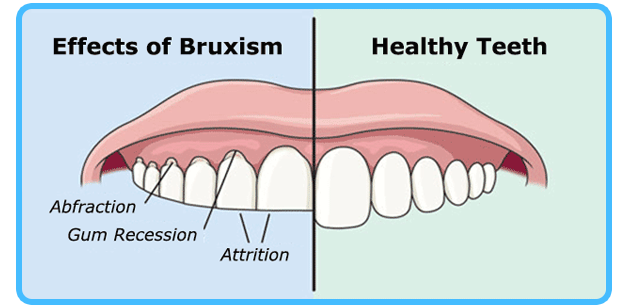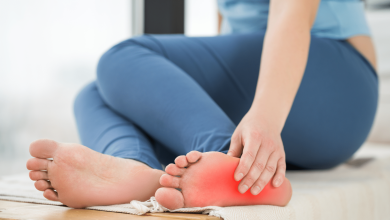Botox Injections for Bruxism

“Do you suffer from teeth grinding or jaw clenching? Botox in Dubai might be the solution you’ve been searching for.”
Introduction:
Bruxism is a common condition characterized by teeth grinding or jaw clenching. Which can result in a number of unpleasant symptoms such as headaches, jaw pain, and tooth sensitivity. While bruxism can be caused by various factors, including stress and anxiety. It can also be a side effect of certain medications or a result of misaligned teeth. Fortunately, there are a number of treatment options available for bruxism, including Botox injections. In this article, we’ll take a closer look at how Botox in Dubai can be used to treat bruxism.
What is Botox?
Botox is a neurotoxin that is derived from the bacterium Clostridium botulinum. When injected in small amounts, it can be used to temporarily paralyze muscles, which makes it a popular treatment for a number of medical and cosmetic conditions. Botox injections are often used to reduce the appearance of wrinkles and fine lines, but they can also be used to treat a variety of medical conditions, including migraines, hyperhidrosis (excessive sweating), and bruxism.
How does Botox treat bruxism?
Botox injections can be used to treat bruxism by temporarily paralyzing the muscles responsible for teeth grinding and jaw clenching. The injections are usually administered in the masseter muscles, which are located on either side of the jaw. By paralyzing these muscles, Botox can prevent them from contracting, which can reduce the frequency and intensity of teeth grinding and jaw clenching.
What happens during a Botox injection for bruxism?
Before receiving a Botox injection for bruxism, you’ll need to have a consultation with a qualified medical professional. During the consultation, the medical professional will evaluate your symptoms and determine if you’re a good candidate for the treatment. If you are, they will discuss the procedure with you and answer any questions you may have.
During the injection, the medical professional will use a small needle to inject Botox into the masseter muscles on either side of your jaw. The injection itself is relatively painless, and the entire procedure usually takes less than 30 minutes. You may experience some mild discomfort or bruising at the injection site, but this typically goes away within a few days.
What are the benefits of Botox for bruxism?
There are a number of benefits to using Botox to treat bruxism. First and foremost, it can be a highly effective treatment for reducing the frequency and intensity of teeth grinding and jaw clenching. It’s also a non-invasive treatment option that doesn’t require surgery, and it has few side effects. Additionally, the effects of Botox typically last for several months, which means you won’t need to receive injections as frequently as you would with other treatments.
What are the potential risks of Botox for bruxism?
While Botox is generally considered to be safe, there are some potential risks and side effects associated with the treatment. Some people may experience mild discomfort or bruising at the injection site, while others may experience more serious side effects such as difficulty swallowing or breathing. It’s important to discuss any potential risks with your medical professional before undergoing the procedure.
Who Is the Ideal Candidate?
Botox injections for bruxism can be an effective treatment option for a wide range of people. But there are some factors that may make it a more or less suitable option for certain individuals.
- Individuals who suffer from bruxism and have not found relief from other treatments
- People who want a non-invasive treatment option for bruxism
- Patients who are not pregnant or breastfeeding
- Individuals who are not allergic to Botox or any of its ingredients
- People who do not have any muscle or nerve conditions that could interfere with the effectiveness of the treatment
- Patients who are willing and able to undergo regular injections to maintain the effects of the treatment.
The procedure of Botox for Bruxism
The procedure for administering Botox injections for bruxism typically involves the following steps:
- Consultation: Before undergoing Botox injections for bruxism, you’ll need to have a consultation with a qualified medical professional. During this consultation, the medical professional will evaluate your symptoms and determine if you’re a good candidate for the treatment. They will also discuss the procedure with you and answer any questions you may have. Read more about glutathione in Dubai
- Preparation: On the day of the procedure, the medical professional will clean the injection site and may apply a topical anesthetic to minimize any discomfort.
- Injection: The medical professional will use a small needle to inject Botox into the masseter muscles on either side of your jaw. The injection itself is relatively painless, and the entire procedure usually takes less than 30 minutes.
- Post-procedure care: After the injection, the medical professional may apply an ice pack to the injection site to minimize any swelling or bruising. They will also provide you with instructions on how to care for the injection site and what to expect in the days and weeks following the procedure.
It’s important to note that the dosage and number of injections required for Botox injections for bruxism can vary depending on the severity of your symptoms and other individual factors. It’s also important to receive Botox injections from a qualified medical professional who has experience administering the treatment for bruxism.
Post Care after Treatments
After receiving Botox injections for bruxism, it’s important to take proper care of the injection site and to follow any post-procedure instructions provided by your medical professional. Here are some general post-care tips to keep in mind:
- Avoid touching or rubbing the injection site for at least 24 hours after the procedure.
- Avoid strenuous exercise or activity for at least 24 hours after the procedure.
- Apply an ice pack to the injection site as needed to minimize swelling or discomfort.
- Avoid lying down or leaning forward for at least 4 hours after the procedure.
- Avoid consuming alcohol or taking blood-thinning medications for at least 24 hours after the procedure.
- Follow any additional post-procedure instructions provided by your medical professional, such as taking pain medication or using a mouthguard at night.
It’s also important to keep in mind that the effects of Botox injections for bruxism are temporary and typically last between 3 and 6 months. To maintain the benefits of the treatment, you may need to schedule regular follow-up appointments with your medical professional for additional injections. By following proper post-care instructions and working closely with your medical professional, you can help ensure a safe and effective outcome from your Botox injections for bruxism.




